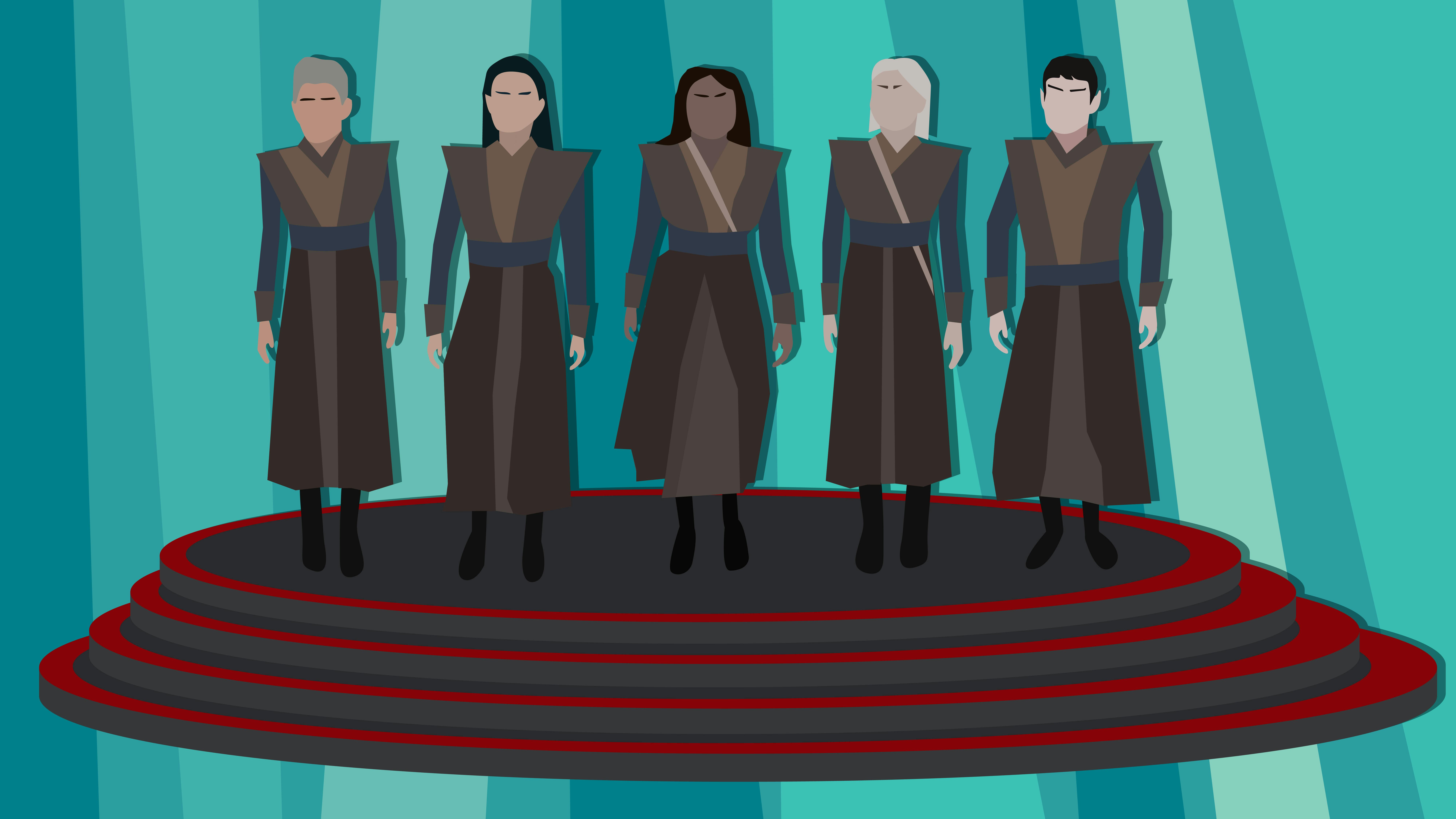Published Sep 8, 2022
Staying Present in the Journey: The Lessons of Strange New Worlds
A fan considers 'live long and prosper' in the age of hustle and grind culture.

StarTrek.com
Live long and prosper.
I dare anyone to find a fellow geek, nerd, or overall pop culture enthusiast who hasn’t heard these words echo throughout their arts-consuming life at one time or another. Iconic doesn’t even begin to do them justice. Four words, one idea; however, they are still just that — four words. So, let’s break them down for a moment.
Live long.
I’d wager that not only do we all understand the first two words, but most of us probably actually want to accomplish the feat it describes. Now that we’ve got that down. What about those remaining two words?
And prosper. And…prosper.
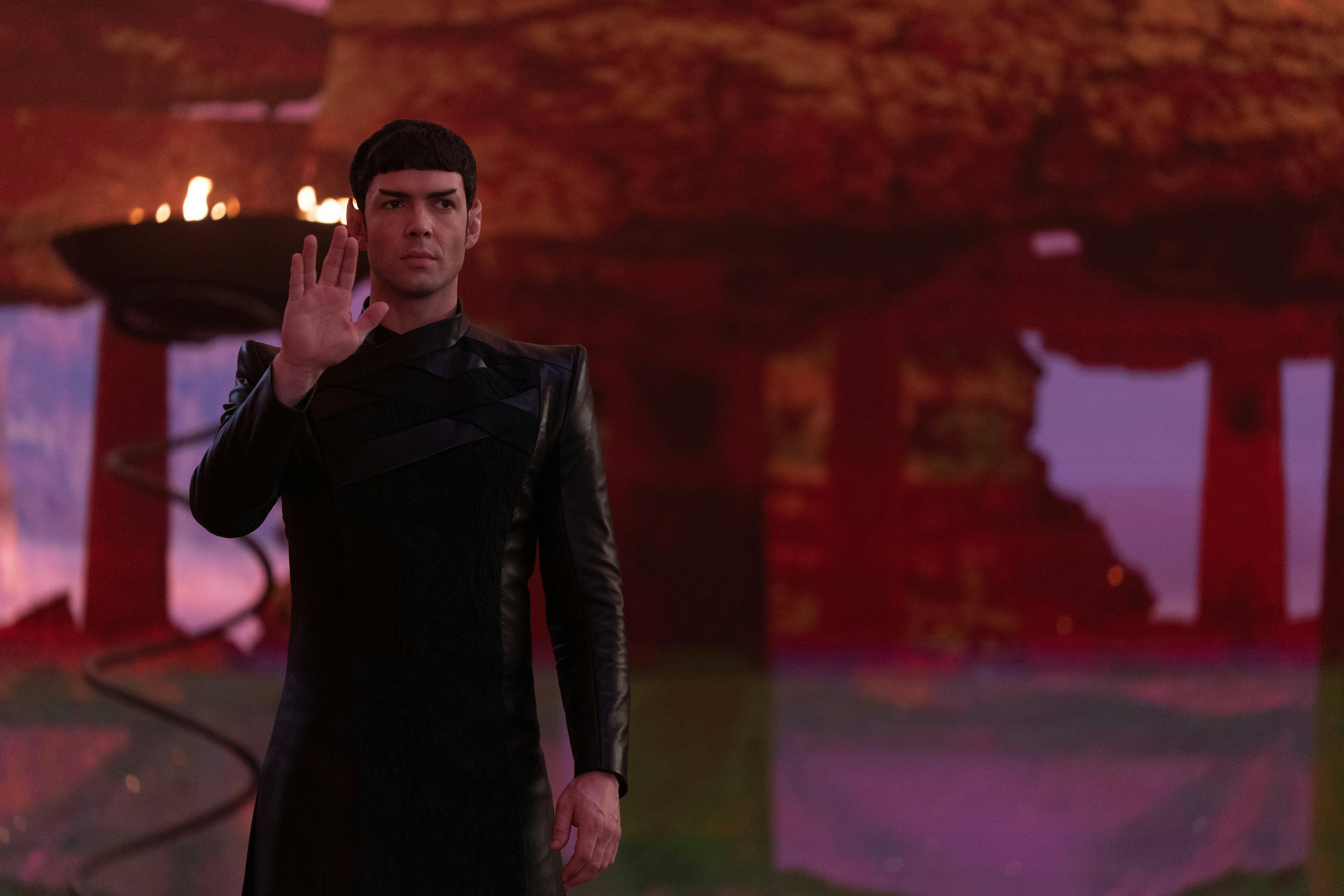
StarTrek.com
If you’re anything like me whatsoever, this is probably the part of the infamous Vulcan phrase that makes you raise an inquisitive eyebrow (not unlike that of Spock when he utters this wish of good fortune). What does it mean? What does it actually mean to “prosper”? It’s a question that’s been on my mind for years; both within the context of Star Trek, and in terms of the world which Trek reflects and converses with.
That said, that world is changing. Our world is changing. To “prosper” now as an idea feels almost inherently intertwined with goals. Goals, checkmarks, lists, and easily quantifiable milestones that we can boil down into bullet points for our job applications or our social media presence. This is the age of “hustle and grind culture.” It’s an era that not only gives me pause, but one that quite frankly poisons my body and mind with looming anxiety (I know I’m not alone in that). Thankfully, this era that constantly makes us feel inadequate, and consistently makes us feel like we’re behind, is not without its beacons of light.
Thankfully…it’s not without Star Trek: Strange New Worlds.
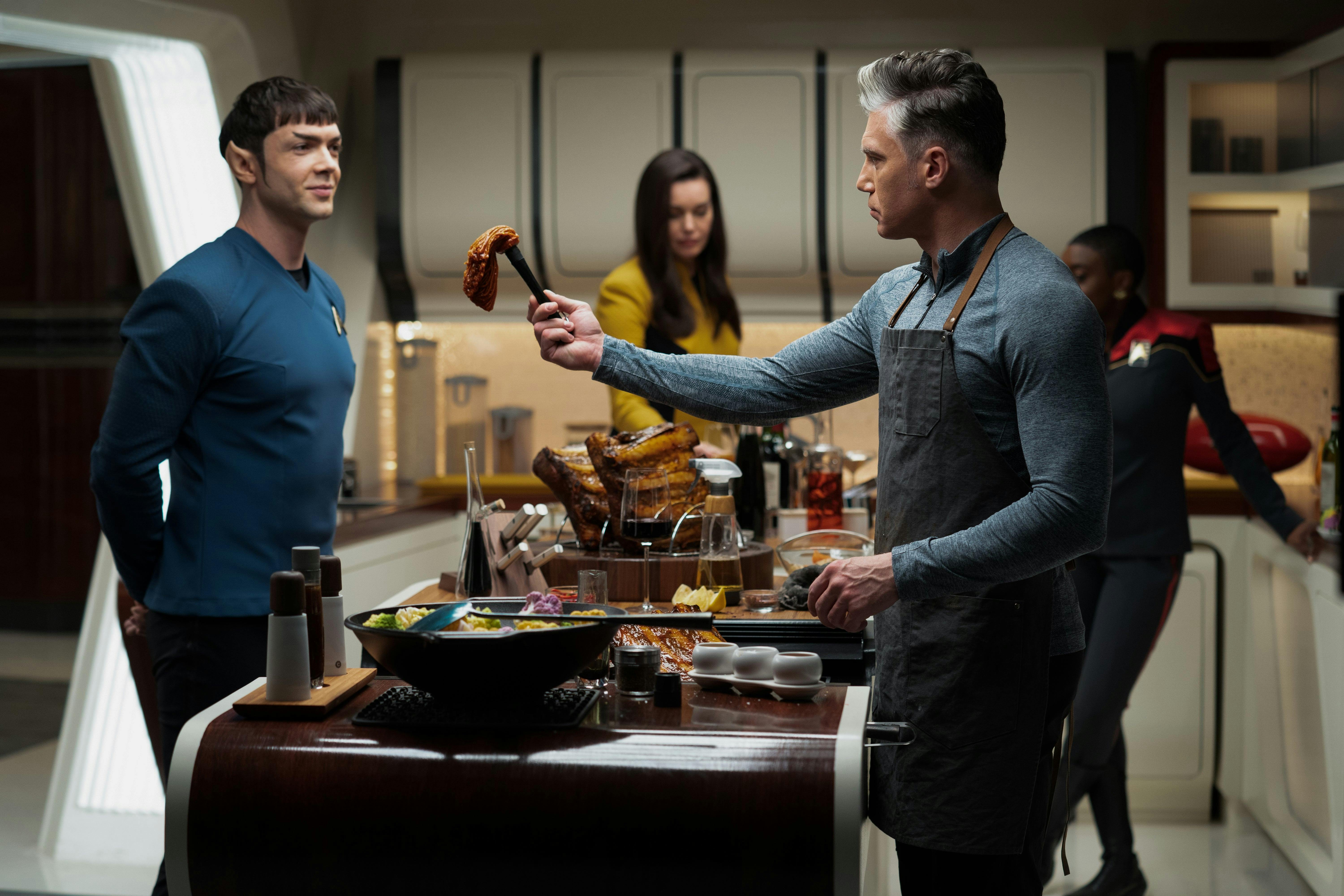
StarTrek.com
The work done on this show by Alex Kurtzman, Akiva Goldsman, Henry Alonso Myers, and their entire writing staff, cast, and crew can be described not only as a balm for the soul, but as a tonic for the times. Strange New Worlds is a refutation of grind culture. It’s a treatise standing proudly against internet discourse questions, like “Can they stick the landing?” It’s a show that is proudly, loudly, and colorfully telling us all to live in the moment. To “prosper” in every instance, big or small, warm or weird, triumphant or devastating.
To see this beautiful work for all that it is, I ask that you first look at the owner of the best head of hair to ever grace the cosmos — Captain Christopher Pike, as impeccably played by Anson Mount. Pike is a man living on borrowed time. He’s a man boldly going many places, yes, but he’s also slowly approaching a devastating personal doom. He’s seen it, he’s felt it, and it IS coming, without a doubt. Much of the inaugural season of Strange New Worlds centers around how he comes to some measure of peace with the haunting fact — he will not prosper. At least not in the way that aligns with the objective-oriented definition of “prosper.”
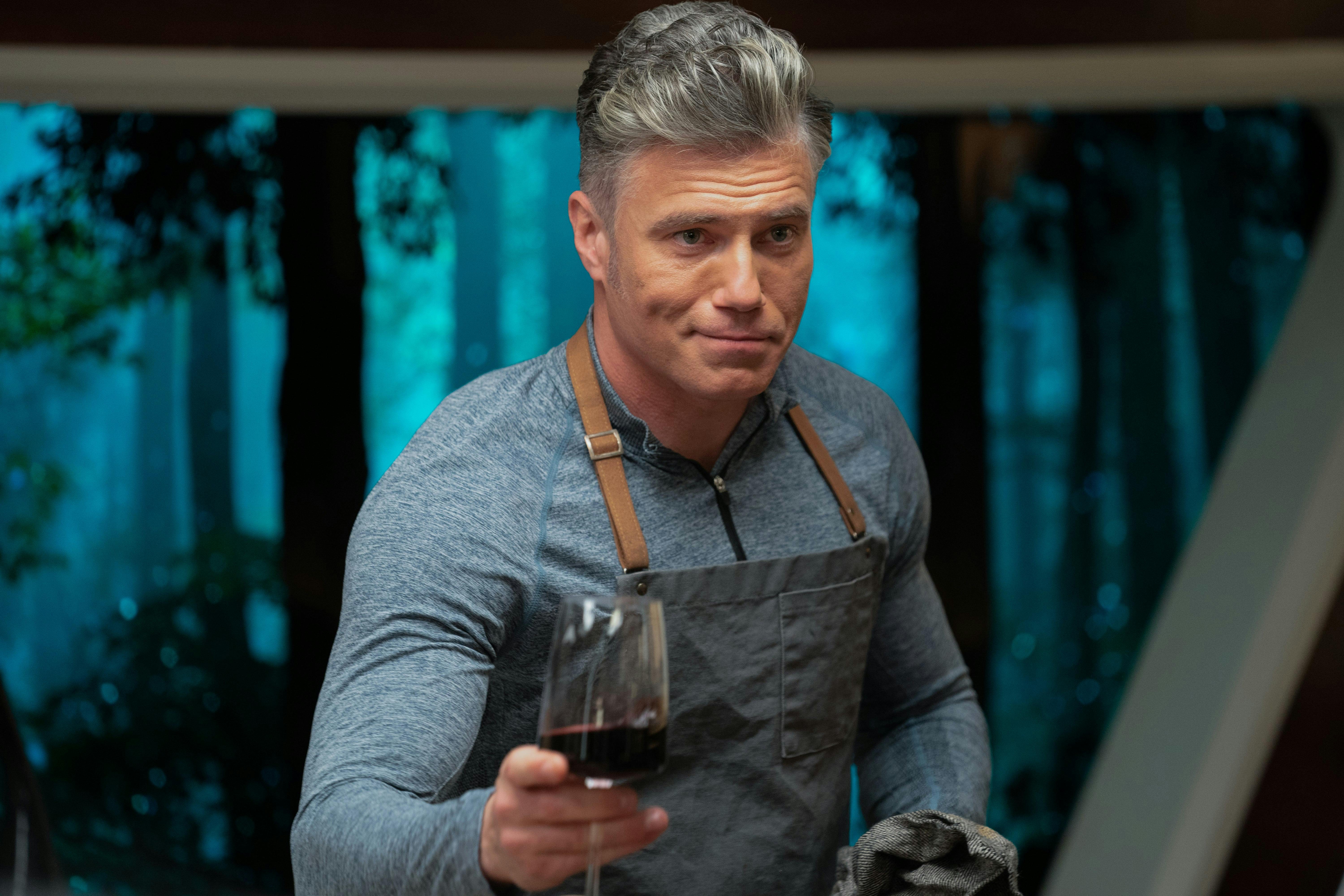
StarTrek.com
In our current landscape, to have your life and career cut off, and to lose all ability to function in the way you once did, would absolutely be considered a tragedy. That doesn’t mean he won't have a life worth living still. Once Pike reaches the climactic face-to-face with his older, alternate-timeline self in “A Quality of Mercy,” it finally dawns on him that his value isn’t determined by the ending. He’s able to process what value he still has, and what his relationships and deeds have imbued into his story. His life isn’t defined by the fact that tragedy awaits him seven years down the road, but rather by his refusal to trade a friend like Spock to avoid his own downfall. His life is defined by the love that still remains strong even in an alternate timeline. Moments like Pike and Spock acknowledging their powerful bond cement his realization, and it’s the many interactions with the crew of the Enterprise throughout the season that helped ferry him to this moment of peace.
Everyone circles around these core ideas. Look at the journey of the show’s younger, cadet-rank Nyota Uhura. Celia Rose Gooding plays moments throughout her season-long arc with an anxiety that’s so emblematic of youth, and those fears gradually transform into surety. When Pike asks her about where she sees herself years down the road in “Children of the Comet,” she expresses that she doesn’t really know what she envisions for herself. She doesn’t have a set plan yet, and she’s far from becoming the icon that we all know and love. But what I love about this scene is the crew’s reaction. Sure, they’re surprised to hear to her honesty, as it isn’t a typical Starfleet response, but there’s no shame. There’s no judgment. There’s an air of acceptance and curiosity, which I really appreciated. It’s so valuable for kids to see a young person have that kind of experience in a time where they might feel defined by grades, or by plans. The show presents an environment that opens itself to those filled with both determination and doubt. It’s an environment that highlights the steps along the way, and every kind of choice that inform later moments. And with that environment also comes a compassion that helps other crew members and their families.
Star Trek: Strange New Worlds - 37 Languages
Yes, my friends. It’s time to talk about Dr. M’Benga and his daughter Rukiya. A tragedy in some aspects, undoubtedly. But it’s really a story of hope. It’s a story that says that effort in the face of an impossible situation does matter, and that it can be rewarded, even if the “goal” itself is never achieved. Dr. M’Benga never finds the cure for Rukiya’s condition (even with the knowledge provided by medical advancements on Majalis). In today’s achievement-obsessed culture, that might be considered “a failure.” But the soul of "The Elysian Kingdom" is about exploring the love he gave Rukiya along the way. Because of the emotional experiences he imbued into her life, even in the smallest of storybook moments, she was able to ascend to higher heights. She became something more, something free, something divine, all because of the tiny in-betweens. Cure or no cure, M’Benga’s journey is one that was important the entire time, and he was finally able to realize that when conversing with the newly grown cosmic Rukiya. What a moment for families everywhere.
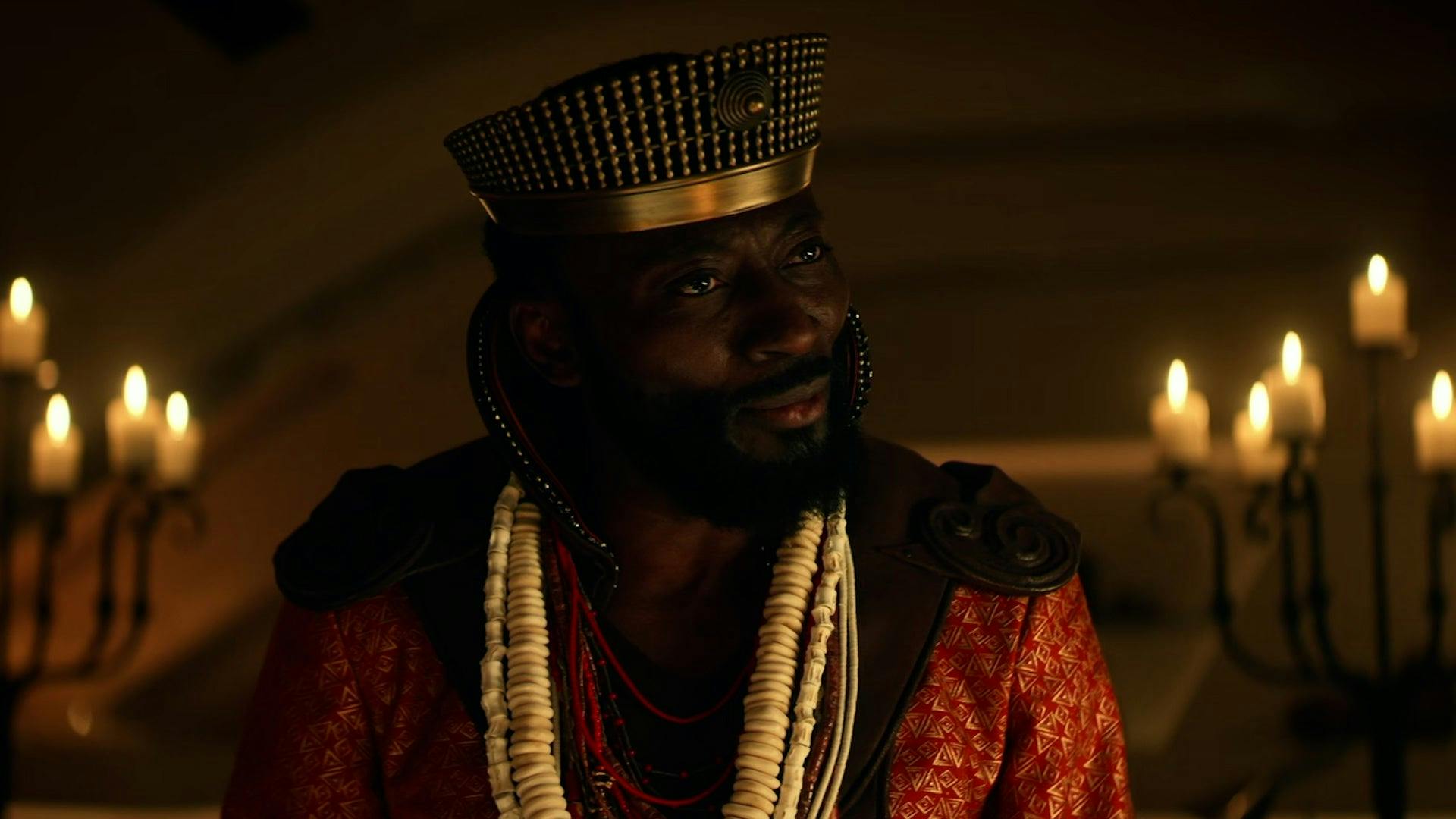
StarTrek.com
And what does “the journey” mean for a pairing like Christine Chapel and the aforementioned Mr. Spock? That particular situation evolves the idea of goals and destinations by actually using the Trek audience’s knowledge of in-universe canon. Much like Pike with his own fate, we’re aware of Spock and Chapel's fate. By the time of The Original Series, Nurse Chapel and Spock aren’t together, but it doesn’t mean their signature “will they, won’t they” dynamic isn’t without value. Though it ultimately won’t end up a fully-realized romantic relationship, both parties still grow through their interactions. Chapel is able to form a bond of trust in the midst of her new adventure aboard the Enterprise. With her abilities to listen and communicate on glorious display, she’s able to find a truthful connection that maybe she’d been missing up until this point (as evidenced by what we hear of her dating history). And as for Spock’s personal gains, we can witness him beginning the journey toward balance with his humanity in every action with Christine. The end point classification of “not a couple” doesn’t matter. But their shared spark and deep friendship were absolutely essential (and Ethan Peck and Jess Bush captured the essence perfectly).
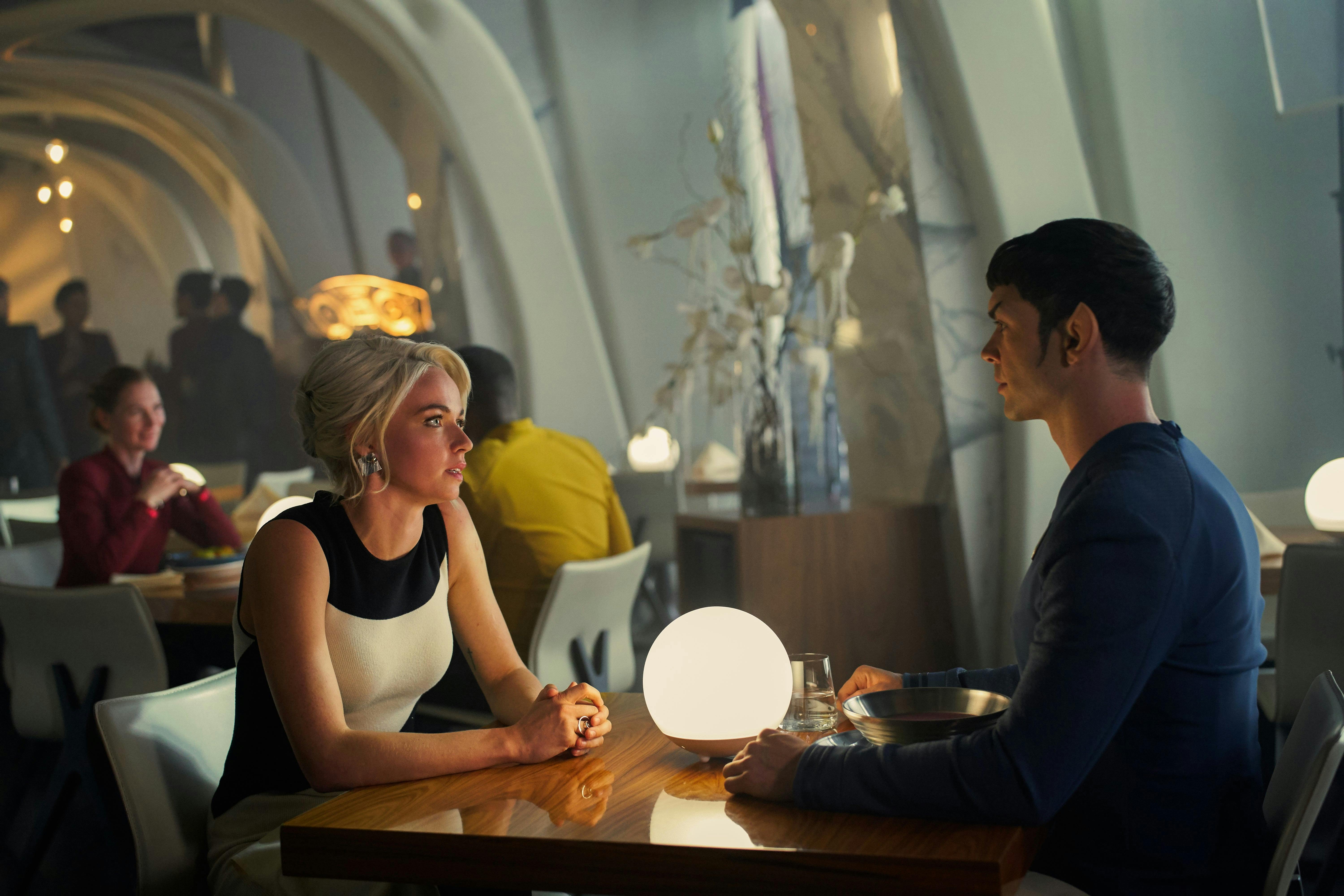
StarTrek.com
So look at this crew. Look at just some of these fascinating people. This is a group of individuals taken in a series of chapters. Each one of them is a product of every experience, and not just their planetary discoveries or their triumphs over evil.
And as fans, we remember them, not for their lists of accolades and stats, but because of the laughs and tears we shared with them across the stars. That’s the stuff we can’t quantify, and that’s the stuff that’s, quite frankly, more powerful than the relentless grind of hustle culture. That purity of presence within all of life’s steps is more powerful than any force that would make someone feel like their journey isn’t paying off. It is all paying off, now and every day.
You’re prospering now. Like Captain Pike, you’re writing and defining your story every day.
Star Trek: Strange New Worlds knew this, and it made sure to remind us for ten incredible episodes. I love this show, and I’m so heartened by the fact that it gave us a timely, necessary perspective.



